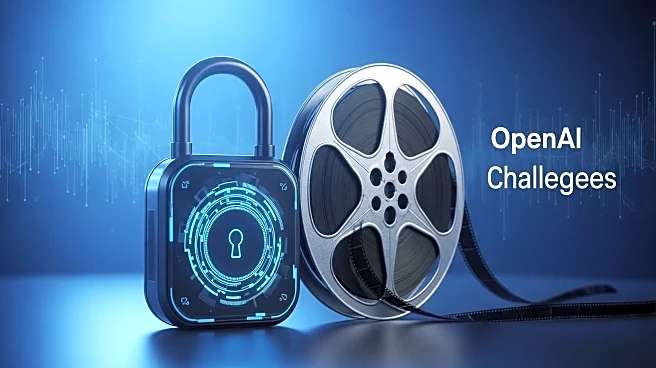What's Happening?
OpenAI's video tool, Sora 2, has implemented new policies to ban the use of real people's likenesses and copyrighted characters in AI-generated videos. This decision follows backlash from celebrities and rights-holders who were concerned about unauthorized
use of their images. Despite these measures, a loophole remains that allows the likenesses of deceased celebrities to be used without consent. The family of Martin Luther King Jr. successfully blocked his likeness, but other estates, like that of Robin Williams, have struggled to prevent unauthorized use. The issue highlights a legal gray area regarding posthumous likeness rights, which vary globally, leaving families with limited options to protect their loved ones' images.
Why It's Important?
The dead celebrity loophole in AI content creation raises significant ethical and legal concerns. It underscores the challenges in regulating AI technologies and protecting individual rights in the digital age. Families of deceased celebrities may face difficulties in controlling the use of their loved ones' likenesses, potentially leading to reputational harm or misuse. This situation could prompt further discussions on the need for comprehensive legislation to address posthumous rights and the responsibilities of AI developers in safeguarding these rights. The ongoing debate may influence future policies and industry standards in AI content creation.
What's Next?
OpenAI has stated that public figures and their families should have control over how their likeness is used, allowing authorized representatives or estate owners to request removal from Sora 2. However, the effectiveness of these measures remains to be seen, as the loophole persists for those without estates or legal representation. The issue may lead to increased advocacy for stronger legal protections and clearer guidelines on posthumous likeness rights. Stakeholders, including legal experts and rights organizations, may push for international standards to address these challenges and ensure ethical use of AI technologies.
Beyond the Headlines
The dead celebrity loophole in AI content creation highlights broader implications for privacy and intellectual property rights in the digital era. As AI technologies advance, the ability to recreate realistic images and videos poses risks to personal privacy and the integrity of historical figures. This development may prompt discussions on the ethical use of AI and the balance between innovation and individual rights. The situation also raises questions about the role of AI in shaping cultural narratives and the potential for misuse in altering public perceptions of historical figures.















